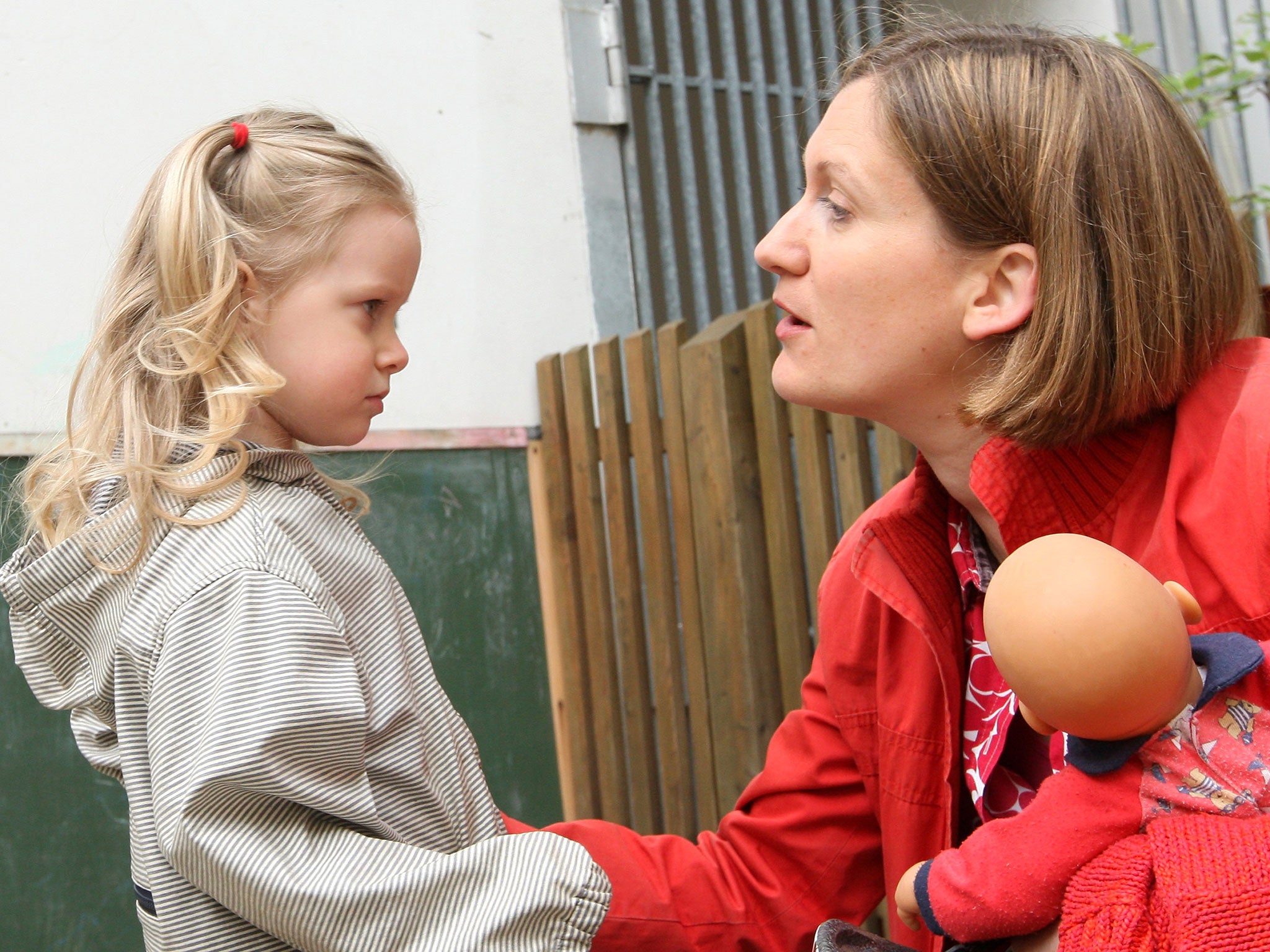The things parents say to children 'which could do them more harm than good'
New research suggests that certain phrases may be bad for a child's self-esteem later in life

Your support helps us to tell the story
From reproductive rights to climate change to Big Tech, The Independent is on the ground when the story is developing. Whether it's investigating the financials of Elon Musk's pro-Trump PAC or producing our latest documentary, 'The A Word', which shines a light on the American women fighting for reproductive rights, we know how important it is to parse out the facts from the messaging.
At such a critical moment in US history, we need reporters on the ground. Your donation allows us to keep sending journalists to speak to both sides of the story.
The Independent is trusted by Americans across the entire political spectrum. And unlike many other quality news outlets, we choose not to lock Americans out of our reporting and analysis with paywalls. We believe quality journalism should be available to everyone, paid for by those who can afford it.
Your support makes all the difference.Simple sayings parents utter to children such as “you naughty girl” could do them more harm than good in the future, new research suggests.
Some commonly-said phrases used by parents may be bad for their children's self-esteem as it teaches them to label themselves, news.com.au reports.
While, traditionally, these sayings have always seemed acceptable, recent research and knowledge in the area shows parents should stop saying phrases such as the following to their children:
“You naughty boy/girl!”
Gregg Chapman, psychologist and clinical manager at Strategic Philosophy, told news.com.au that instead of this reprimand, parents should address the underlying situation or problem.
“How many times have I told you?”
Parents should engage with their children and ask them how they can get their child to effectively understand the message they are trying to convey, according to Mr Chapman.
“How could you do this to me? After all I do for you!”
Mr Chapman says the child is not behaving with a sense of obligation to the parent and so such a response is not helpful. Instead, they should help their child to understand the effect of their actions.
“You wait until you're home”
Making statements like this can lead to the child feeling scared and insecure within the relationship.
“Don’t be stupid”
Using negative terms such as “stupid” to describe a child’s behaviour may lead to them labelling themselves later on in life.
“You make mummy very happy when you eat all your dinner”
Dympna Kennedy, founder of parenting organisation Creating Balance, told the new site that it is important children do not think they need to do external things for praise - something which can lead to them becoming people-pleasers later on in life.
Click here to read the list in full.
Join our commenting forum
Join thought-provoking conversations, follow other Independent readers and see their replies
Comments